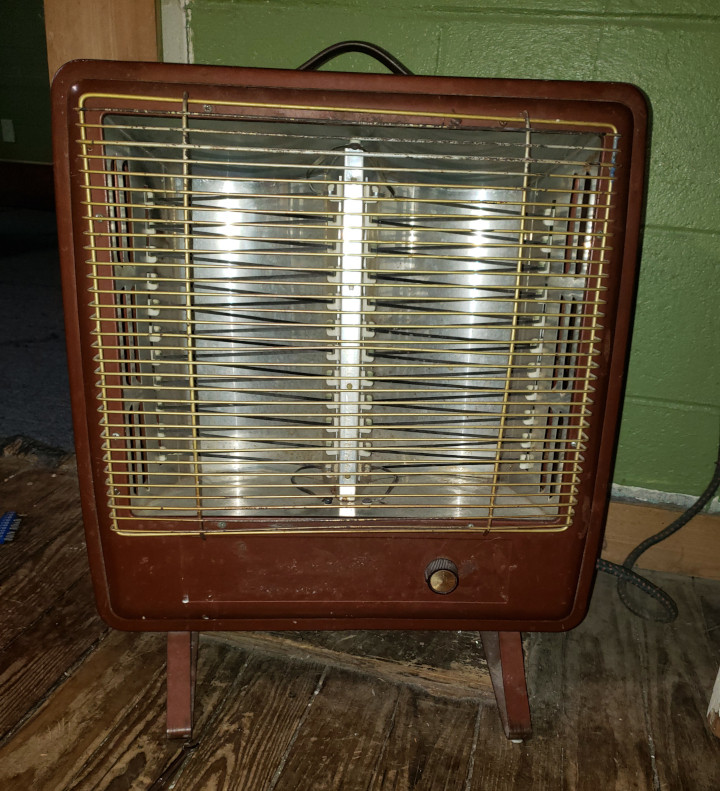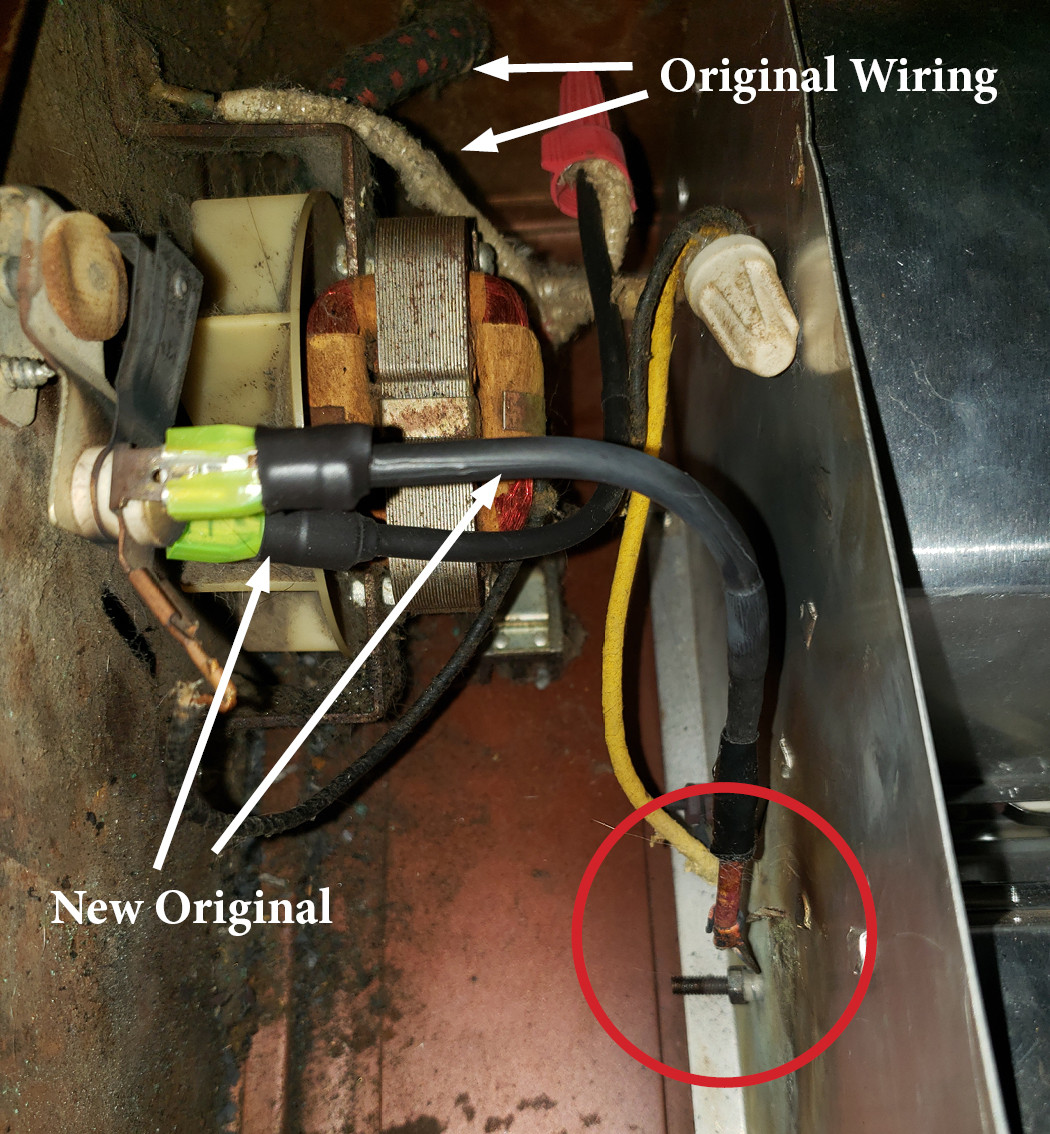I have an older 220V heater that came with the house I bought. It worked wonderfully for years, but then a wire burned out and each time I replace it, it burns out again within a week. The original wires were some kind of cloth-covered wire and there are still some of the original wiring, I have only replaced the burnt-out wires. One in particular keeps burning out. It connects to the screw which connects to the heater coils in the front. I have used all gauges of stranded wire and I have used solid wires. I use a ring terminal to connect the wire to the screw.
What can I do to fix this once and for all? Is there a certain type and gauge of wire to use? A different connector?


